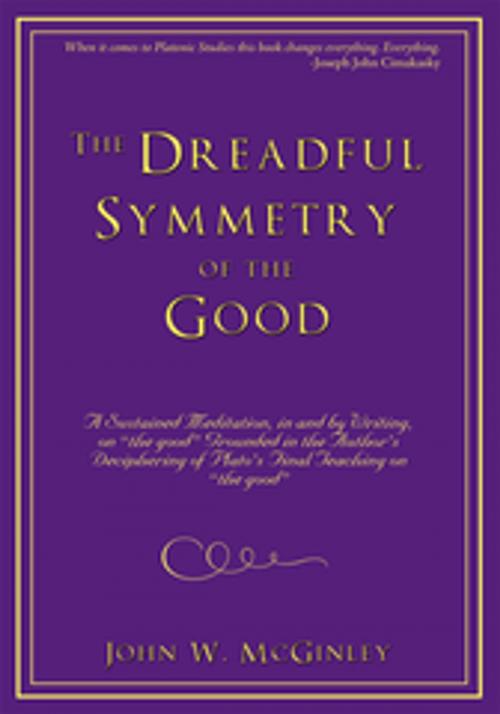The Dreadful Symmetry of the Good
A Sustained Meditation, in and by Writing, on "The Good" Grounded in the Author's Deciphering of Plato's Final Teaching on "The Good"
Nonfiction, Religion & Spirituality, Philosophy, Ancient| Author: | John W. McGinley | ISBN: | 9781440165412 |
| Publisher: | iUniverse | Publication: | September 30, 2009 |
| Imprint: | iUniverse | Language: | English |
| Author: | John W. McGinley |
| ISBN: | 9781440165412 |
| Publisher: | iUniverse |
| Publication: | September 30, 2009 |
| Imprint: | iUniverse |
| Language: | English |
Yes, thats right. The writings of Plato do NOT all fit together in harmony, irrespective of the question of chronological development. To be sure, one is just ice skating over the surface of Platonic writings if one does not have a nuanced understanding of the various periods of Platos intellectual development over time. The incongruity in his writings which is a function of this multi-faceted intellectual development over time can, however, be sufficiently delineated. But there is another kind of incongruity which, especially in Platos case, could never be and in fact never was explainable through a nuanced accounting of Platos long and ever-revising intellectual development.
The writings of Plato could never have been anything other than incongruous in this more fundamental sense, Plato being Plato. For Plato being Plato, early and or middle and or later, IS precisely this: Plato contra Plato. But more than that, the good itself [[i.e., Platos eventual teaching on the good and also, in fact, the good itself obtaining in and as that wellspring of greatness characteristic of reality itself]] is precisely the-good contra the-good. The good always and inevitably, and of its own nature, obtains only incompletely. Even as it presents itself, it withdraws. For the goods very manner of being-at-all is, precisely, this ever-to-be- withdrawing as its way of obtaining at all.
Yes, thats right. The writings of Plato do NOT all fit together in harmony, irrespective of the question of chronological development. To be sure, one is just ice skating over the surface of Platonic writings if one does not have a nuanced understanding of the various periods of Platos intellectual development over time. The incongruity in his writings which is a function of this multi-faceted intellectual development over time can, however, be sufficiently delineated. But there is another kind of incongruity which, especially in Platos case, could never be and in fact never was explainable through a nuanced accounting of Platos long and ever-revising intellectual development.
The writings of Plato could never have been anything other than incongruous in this more fundamental sense, Plato being Plato. For Plato being Plato, early and or middle and or later, IS precisely this: Plato contra Plato. But more than that, the good itself [[i.e., Platos eventual teaching on the good and also, in fact, the good itself obtaining in and as that wellspring of greatness characteristic of reality itself]] is precisely the-good contra the-good. The good always and inevitably, and of its own nature, obtains only incompletely. Even as it presents itself, it withdraws. For the goods very manner of being-at-all is, precisely, this ever-to-be- withdrawing as its way of obtaining at all.















